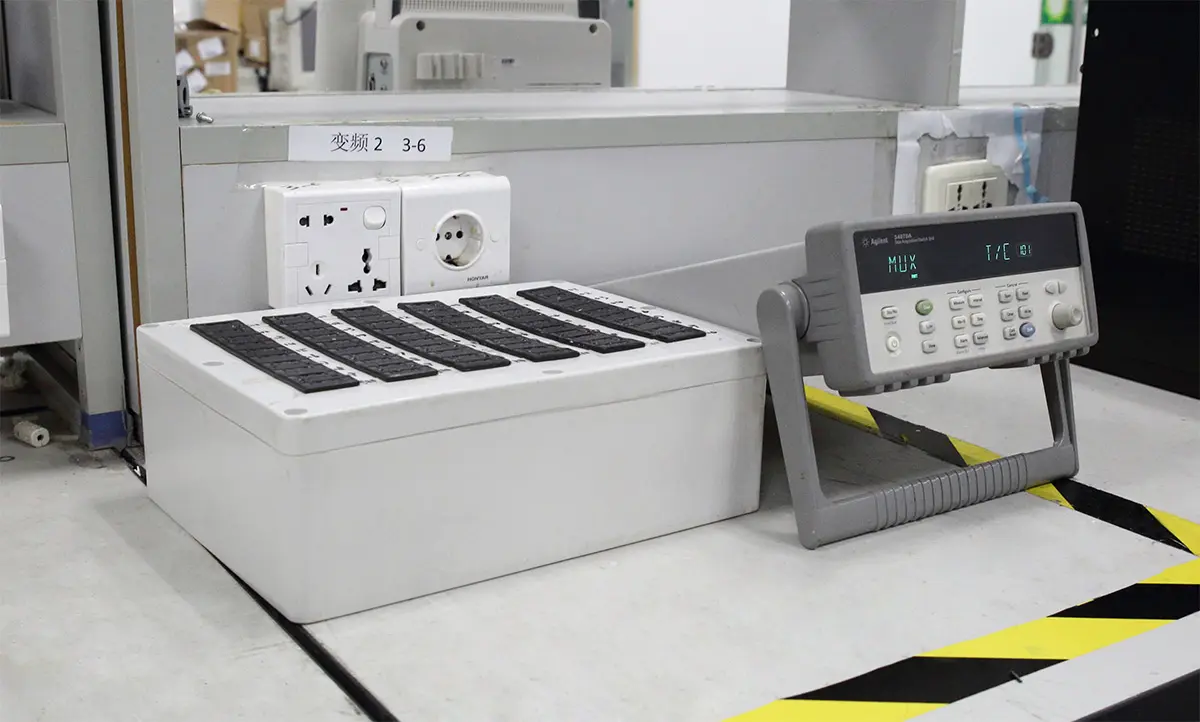
Laser Products FDA Testing in the United States
What are the routine standards for FDA laser product testing?
As the regULatory body for radiological products in the United States, the FDA sets forth requirements for laser radiating products according to the testing standards in 21CFR1040.10. The full name of 21CFR1040.10 is "Title 21, Part 1040.10 of the Code of Federal Regulations" which pertains to laser products. Its essence is similar to iec60825-1 and GB7247.1, serving as methods for testing and certifying the safety levels of laser products, as well as standards for laser product safety protection and labeling. In the United States, these requirements are enforced through regulations, making them more stringent compaRED to standards-based classifications.

FDA Laser Testing Standards for Some Equipment:
- 21CFR1020.31 X-ray imaging equipment
- 21CFR1020.32 Fluoroscopic equipment
- 21CFR1020.33 Computed tomography (CT) equipment
- 21CFR1020.40 Cabinet X-ray systems
- 21CFR1030.10 MICrowave ovens
- 21CFR1040.10 Laser products and laser systems
- 21CFR1040.11 Specific laser products
- 21CFR1040.20 Sunlamp products and ultraviolet lamps intended for use in sunlamp products
- 21CFR1040.30 High-intensity mercury vapor discharge lamps
- 21CFR1050.10 Ultrasonic therapy equipment
- 21CFR1020.10 Television receivers
- 21CFR1020.20 Cold-cathode gas discharge tubes
- 21CFR1020.30 X-ray inspection systems and their major components
Radiation Emitting Electronic Product Report Submission:
For laser products to be sold in the U.S., a report must be submitted to the FDA. The FDA will issue an accession number to the manufacturer, which serves as a registration name. Carriers or U.S. purchasers provide this registration name to the U.S. Customs and Border Protection, allowing laser products to enter the U.S. market. The FDA considers any product provided to potential buyers or exhibited at trade shows as within the scope of being sold in the U.S.
FDA Laser Product Classification:
When manufacturing and selling laser products, it is common to include laser classification labels on the packaging to warn users. How are these classifications determined?
- Class I Laser Products: Power output of 0-0.4 milliwatts, no potential harm. All possibly visible light is shielded, and the laser system is interlocked during exposure.
- Class II Laser Products: Power output of 0.4-1 milliwatts. Does not burn the skin or cause fires. Eye reflexes can prevent some eye damage, so these lasers are not considered hazardous optical instruments.
- Class IIIa Laser Products: Power output of 1-5 milliwatts. Does not burn the skin. In certain conditions, these lasers can cause blindness and other injuries to the eyes.
- Class IIIb Laser Products: Power output of 5-500 milliwatts. At higher power levels, these lasers can burn the skin. They are clearly defined as harmful to the eyes, especially at higher power levels, causing eye damage.
- Class IV Laser Products: Power output exceeding 500 milliwatts. These lasers are certain to cause eye damage. Like burning the skin and igniting clothing, lasers can ignite other materials.
Email:hello@jjrlab.com
Write your message here and send it to us
 How Do You Get a CE Mark
How Do You Get a CE Mark
 IEC 60529 IP Rating Ingress Protection Standard
IEC 60529 IP Rating Ingress Protection Standard
 IEC 60601-1 Medical Electrical Equipment Basic Saf
IEC 60601-1 Medical Electrical Equipment Basic Saf
 European Authorized Representative Medical Devices
European Authorized Representative Medical Devices
 EU Waste Electrical and Electronic Equipment Direc
EU Waste Electrical and Electronic Equipment Direc
 How to Get CE Approval
How to Get CE Approval
 Accelerated Ageing Test
Accelerated Ageing Test
 IP Ingress Protection Testing
IP Ingress Protection Testing
Leave us a message
24-hour online customer service at any time to respond, so that you worry!




